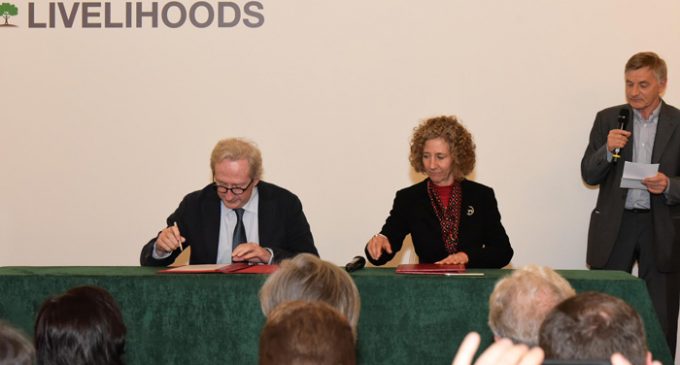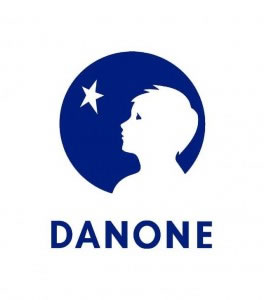Danone and Mars Launch New Fund to Invest €120 Million in Farming Projects in Africa, Asia and Latin America

Danone and Mars, two of the world’s leading food manufacturers, have announced the creation of an innovative investment fund aimed at helping companies to learn how to sustainably source the materials they need from smallholder famers while at the same time delivering large-scale social and economic impact to those farmers and their communities. The Livelihoods Fund for Family Farming (Livelihoods 3F) will implement projects that will simultaneously restore the environment and put degraded ecosystems back on track while improving the productivity, incomes, and living conditions of small rural farmers in developing countries. Livelihoods 3F aims to invest Eur120 million in the next 10 years to implement projects in Africa, Asia and Latin America.
“Livelihoods 3F is based on the conviction that sustainable farming, climate change and poverty are closely linked,” says Bernard Giraud, president of Livelihoods Venture, a service company that will implement the fund. “It is an open investment fund. All businesses that want to source agricultural and natural goods in a sustainable and responsible way are encouraged to join us and increase the breadth of our learning and our impact.”
Livelihoods 3F will operate as a mutual investment fund with shared risks and results-based returns. Financial return for the fund’s investors will be provided by a coalition of private and public third party companies, public utilities, governments, development institutions, etc. that will purchase the goods and positive impacts (such as carbon credits or water savings) generated by the projects.
Investments by Livelihoods 3F will have a triple objective: i) Economic: increase both yields and farmers’ incomes; ii) Social: empower farmers, especially women, and improve the livelihoods of farming families; iii) Environmental: promote responsible farming practices and technologies that sustainably use natural resources to help enhance the resilience of farms, particularly in the face of climate change. It will provide upfront financing and technical support to NGOs and farmers’ organizations that will implement the projects in the field with farming communities.
 “The challenges of sustainable agriculture can be met only if we are able to develop radically different approaches, combining economic, environmental and social objectives,” says Franck Riboud, chairman of Danone. “The best way to find adapted, innovative and concrete solutions is to join forces with other companies, NGOs, government agencies. Besides, it is in this mindset that we created the first Livelihoods carbon fund in 2011. We are launching with Mars a second fund dedicated to family farming. It will enable us to work effectively with smallholder farmers in the field to contribute to our overall performance. We invite other companies to join us in these projects.”
“The challenges of sustainable agriculture can be met only if we are able to develop radically different approaches, combining economic, environmental and social objectives,” says Franck Riboud, chairman of Danone. “The best way to find adapted, innovative and concrete solutions is to join forces with other companies, NGOs, government agencies. Besides, it is in this mindset that we created the first Livelihoods carbon fund in 2011. We are launching with Mars a second fund dedicated to family farming. It will enable us to work effectively with smallholder farmers in the field to contribute to our overall performance. We invite other companies to join us in these projects.”
“Delivering quality products that consumers love, and growth we can be proud of as a company, are dependent upon having a sustainable value chain that creates mutual benefit for the farmers that work so hard to produce our agricultural ingredients. Our collaboration with Livelihoods and Danone to kick off this fund is an investment in learning more about what we can do to improve practices and prosperity in small holder farming communities,” says Victoria B Mars, chairman of Mars. “The open fund also presents the opportunity to create real scale by engaging with others. Business has an important role to play in addressing environmental and societal challenges and by focusing on such long-term investments we believe we can contribute. By coming together with Danone, we have a significantly greater chance of success and an opportunity to have meaningful positive impact that will endure.”
Livelihoods 3F was born out of the realization that there is a great need for increased investment in global food security and agriculture, in particular from the private sector. With the world’s population increasing from 7 billion to 9 billion people in 2050, the need to produce more with fewer natural resources available is becoming more of a major challenge.
Deforestation, land degradation, climate change and biodiversity losses are increasingly threatening ecosystems. In both developed and developing countries, family farming is the predominant form of agriculture. 500 million family farmers today produce 70 percent of the world’s food supply.
 For those farmers and their families grappling with environmental degradation and poverty, having access to practices that increase their productivity and incomes while simultaneously preserving or restoring soil fertility, water resources and biodiversity is a major opportunity.
For those farmers and their families grappling with environmental degradation and poverty, having access to practices that increase their productivity and incomes while simultaneously preserving or restoring soil fertility, water resources and biodiversity is a major opportunity.
However, small family farmers are not currently bankable investees for investment funds despite the fact that they dominate the supply side of many major markets like cocoa, coffee or rubber. Livelihoods 3F’s purpose is to aggregate these farmers and to integrate them into value chains with the positive impact benefits monetized to give a return for the fund.
The innovative model of Livelihoods 3F, which is dedicated to fighting against climate change, food insecurity and poverty through a diverse coalition of participants from the private sector, public sector, and civil society, is well aligned with one of the main ideas that will be discussed at the United Nations Climate Change Conference (COP21) that will be held in Paris in 2015. When faced with global challenges, no single institution or single individual can come up with solutions on its own, which is why a co-creative approach like Livelihoods is essential to leveraging impact.
Livelihoods 3F will capitalize on the success of the first Livelihoods fund, a carbon investment fund initiated by Danone in 2011 and joined by 9 companies since (Schneider Electric, Crédit Agricole, Hermès, SAP, Michelin, CDC Climat, Firmenich, Voyageurs du Monde, French Postal Group). This carbon fund has invested in 7 projects dedicated to mangrove restoration, rural energy, and agroforestry. To date, the fund has planted 130 million trees that will sequester 8 million tons of CO2 and improve the lives of thousands of rural community members.

































